Animals
-
 Animals
AnimalsThree-toed sloths are even more slothful than two-toed sloths
The three-toed sloth Bradypus variegatus has the lowest field metabolic rate ever recorded, a new study finds.
-
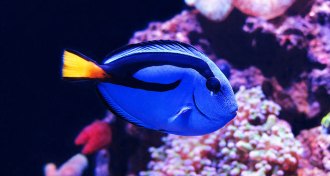 Animals
AnimalsThat ‘Dory’ for sale may have been poisoned with cyanide
Preliminary results from a new study show that over half of aquarium fish sold in the United States may have been caught with cyanide.
-
 Space
SpaceReaders weigh in on ET and the meaning of life
Reader feedback from the June 25, 2016, issue of Science News
-
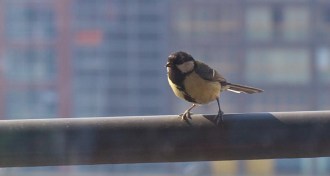 Animals
AnimalsCity living shortens great tits’ telomeres
Great tits raised in urban nests have shorter protective caps on their chromosomes than those raised in rural nests.
-
 Animals
AnimalsCity living shortens great tits’ telomeres
Great tits raised in urban nests have shorter protective caps on their chromosomes than those raised in rural nests.
-
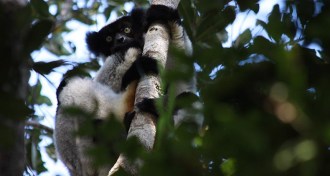 Animals
AnimalsLemurs sing in sync — until one tries to go solo
Indris, a lemur species in Madagascar, sing in synchrony and match rhythm, except for young males trying to stand out.
-
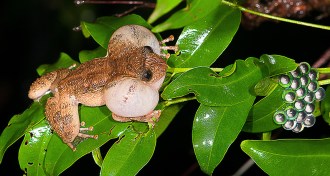 Animals
Animals‘Kermit Sutra’ gets seventh amphibian mating position
Bombay night frogs’ unusual mating protocol features indirect sperm transfer and female croaks.
By Susan Milius -
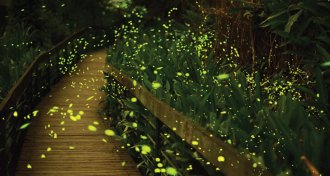 Animals
Animals‘Silent Sparks’ illuminates fascinating world of fireflies
In a new book, a firefly researcher explores why scientists and kids alike are captivated by lightning bugs.
By Sid Perkins -
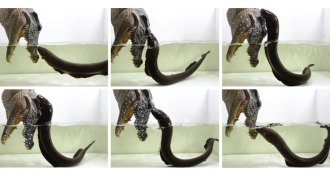 Animals
AnimalsElectric eels play defense with a mighty leap
A biologist finds evidence that a 200-year-old report of electric eels attacking horses may be true.
-
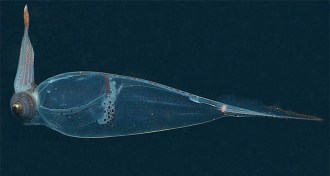 Life
LifeBy leaking light, squid hides in plain sight
Glass squid camouflage their eyes with wonderfully inefficient bioluminescence.
By Susan Milius -
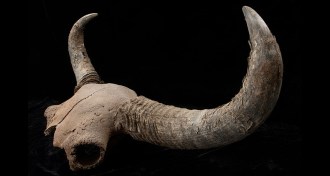 Paleontology
PaleontologyHuman route into Americas traced via trail of bison fossils
Bread crumbs in the form of ancient bison may mark one potential path that humans took to colonize the Americas.
-
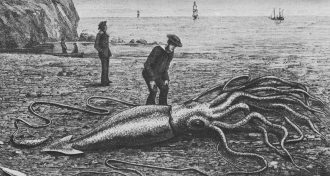 Animals
AnimalsMaximum size of giant squid remains a mystery
A scientist has come up with a new estimate of the maximum size of giant squid. He says the animals could be as long as two public buses.